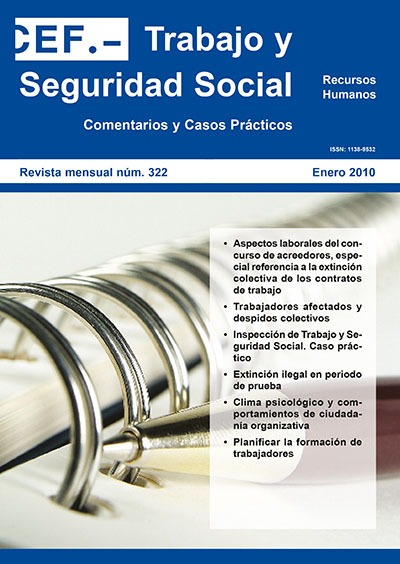The number of involved workers as a key element in the configuration of the collective dismissal
DOI:
https://doi.org/10.51302/rtss.2010.5349Keywords:
Collective dismissal, calculation of dismissal workers, affected workersAbstract
This article analyses how the number of involved workers in a dismissal should be calculated, in order to establish whether it must be dealt with a labour force reduction scheme, because it is a collective dismissal, or if it have to be conducted as a dismissal for objective reasons, since the number of involved workers does not exceed the number established by article 51 of the «Estatuto de los Trabajadores».
The calculation of the number of involved workers is one of the most important problems that article 51 of the Estatuto de los Trabajadores raises. The company decision of dismissal could disguise an abuse of the law or fraud of law, with the intention of not applying the labour force reduction scheme.
The article studies the last High Court decision that could imply a radical change in the actual collective dismissal concept, because the High Court decision holds that in order to label a dismissal decision as collective or not it is indispensable that economical, technical, organizational or production causes concur. This means that, although there is the minimum number of involved workers for a collective dismissal is achieved, if the previuos causes aren't justified, the dissmisal couldn't be qualified as a collective one. Otherwise it should be labelled as an individual dissmisal, according to article 52 of the «Estatuto de los Trabajadores».



















